Almost six decades after spinning his first disc, Johnnie Walker bids a heart-rending farewell to BBC Radio 2: CHRISTOPHER STEVENS looks back on the veteran DJ’s career
Each text took on an extra meaning, an unexpected emotion. All those hits from the past were more than just a soundtrack for Sunday afternoon: they became an echo of our old lives.
Veteran DJ Johnnie Walker, doing his last radio show in a 58-year career, chose the songs that encapsulate his memories – like rocking out on his yellow Harley Davidson to see David Bowie in concert, or the early days on Radio Caroline.
But other memories during this moving and emotional two-hour Sound Of The Seventies broadcast were from us, his listeners. Because the more Johnnie reminisced, the more forgotten meanings welled up in the songs he played.
I never thought I’d get a lump in my throat from Roger Daltrey’s solo single Giving It All Away, or The Skids’ punk war cry Into The Valley.
I hadn’t heard them in decades and had never stopped to think about how much meaning was hidden in the words.
BBC Radio 2 listeners were in tears as terminally ill Johnnie Walker, 79, said goodbye in his final show on Sunday
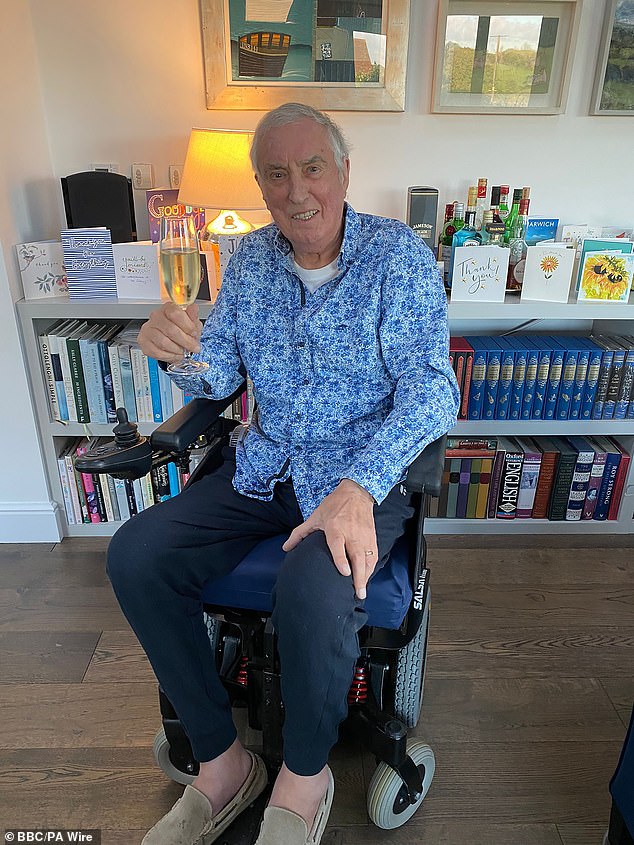
After his show, Johnnie raised a glass of fizz to celebrate his final show
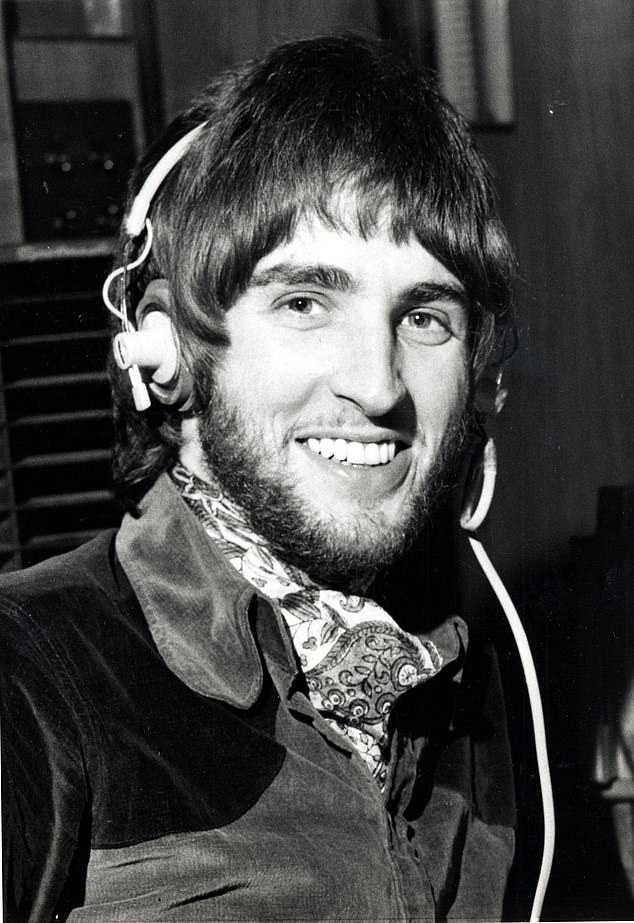
The experienced DJ started his career in radio almost 60 years ago
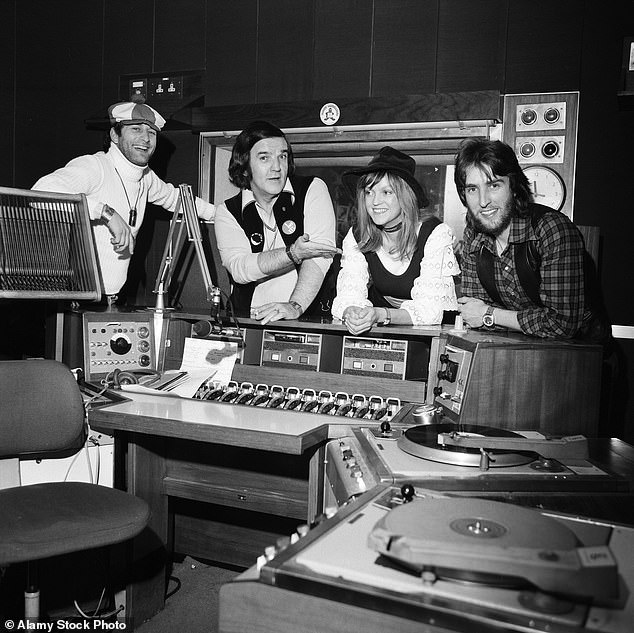
(From left to right) BBC Disc Jockey’s Emperor Rosko, Alan Freeman, Annie Nightingale and Johnnie Walker
After a lifetime of answering listeners’ requests, Johnnie chose his own favorites with the care of a connoisseur. He opened with What Is Life by George Harrison. “What I feel, I can’t say,” the ex-Beatle sang, on a song from an album whose title was also apt: All Things Must Pass.
Johnnie’s reverence for albums, now an outdated format, once cost him his job at the Beeb, he recalled.
In 1976, Radio 1 controller Derek Chinnery said he had to drop the LP releases and play only singles if he wanted to keep his lunchtime show.
Instead, he walked out, prompting Chinnery to complain, “You just love the music too much, man.”
Despite struggling to breathe from the pulmonary fibrosis that is killing him, Johnnie, 79, managed to make a typically pointed comment: “They really wanted DJs to buy a Porsche and open up malls and just play what they were told, and I wasn’t. .’
He made another sardonic swipe as he recalled that Bowie concert at the Royal Albert Hall – ‘filled with the suits from Radio 2 who don’t really know much about music, but they knew David Bowie’. All those executives in collars and ties went backstage to meet the star after the performance and “bored him to death!”
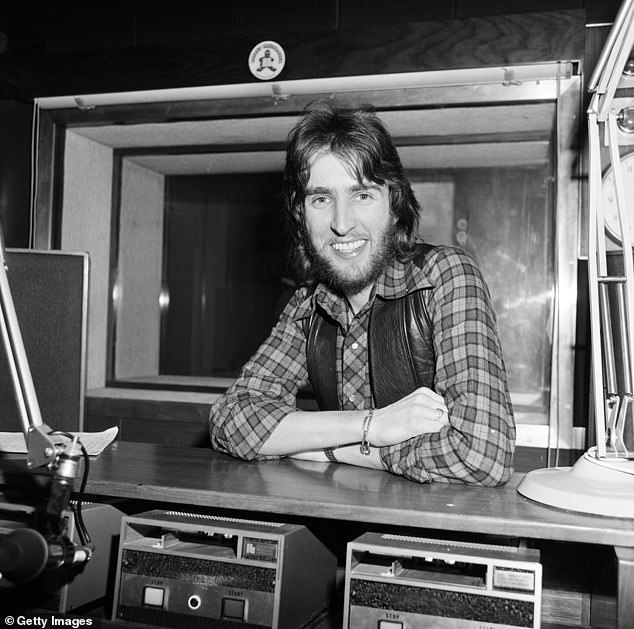
Johnnie started out in pirate radio before first joining the BBC in 1969
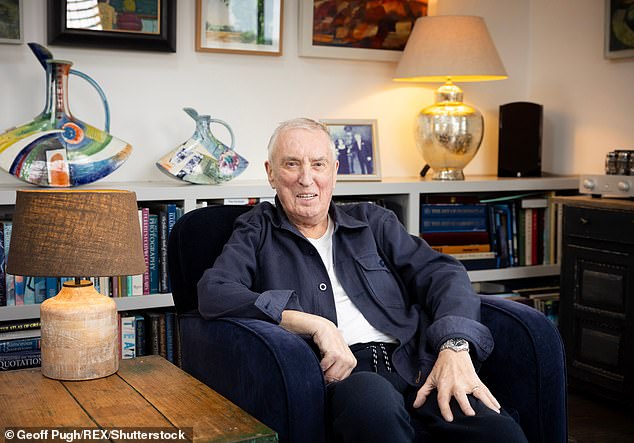
The veteran broadcaster recorded the final episode of his Sounds Of The 70s, ending a 58-year career in radio
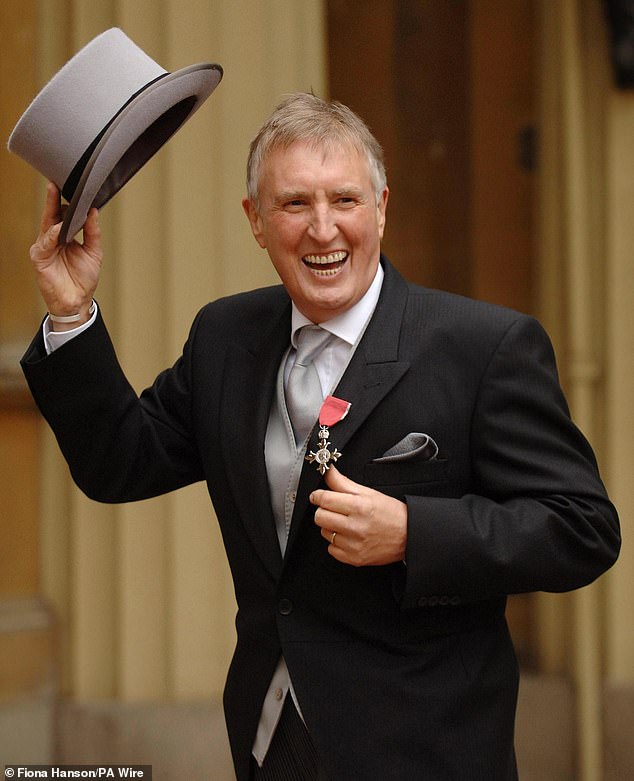
Johnnie has just weeks to live after a battle with idiopathic pulmonary fibrosis, a rare and progressive disease that affects the airways.
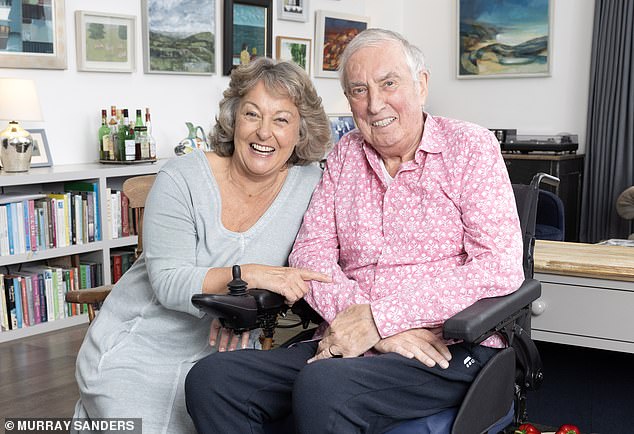
Johnnie with his wife Tiggy. The DJ, who is terminally ill, broadcast many of his recent shows from his home in Dorset
Johnnie was always a rebel. In the early days of Radio 1, other presenters spoke of him with an air of wary awe, as if they feared that just knowing him might get them into trouble.
And in a Raffish interview with his wife Tiggy in the Mail earlier this month, they both giggled about how he had an oxygen tube up his nose – ‘it used to be cocaine’.
I remember him commenting mischievously on Radio 1 in the glam rock era about not being able to see the attraction of girls: “I’m a bottle-and-glass man,” he announced, in rhyming slang . When I was about nine, I was shocked that someone could say that on the BBC. And of course, only Johnnie could do that.
Tiggy was by his side throughout the final show and did his best with teasing and banter. The pair developed their double act while stuck indoors during lockdown – and now, thanks to his terminal lung condition, they were broadcasting from home again.
He names her Tiggy Stardust and played Starman in her honor. Rod Stewart left a phone message thanking him for playing The Faces before they were famous.
“You’ve made a bunch of good-for-nothings famous overnight,” he said, promising to buy him a pint in heaven, “if I can manage to get through the Gate of Pearls.”
Johnnie signed off with the Stones and It’s Only Rock’n’Roll, followed by Judy Collins’ silver version of Amazing Grace. “We’ve lived together a lot now, you and I,” he muttered. It was not clear whether he was talking to Tiggy or us.
